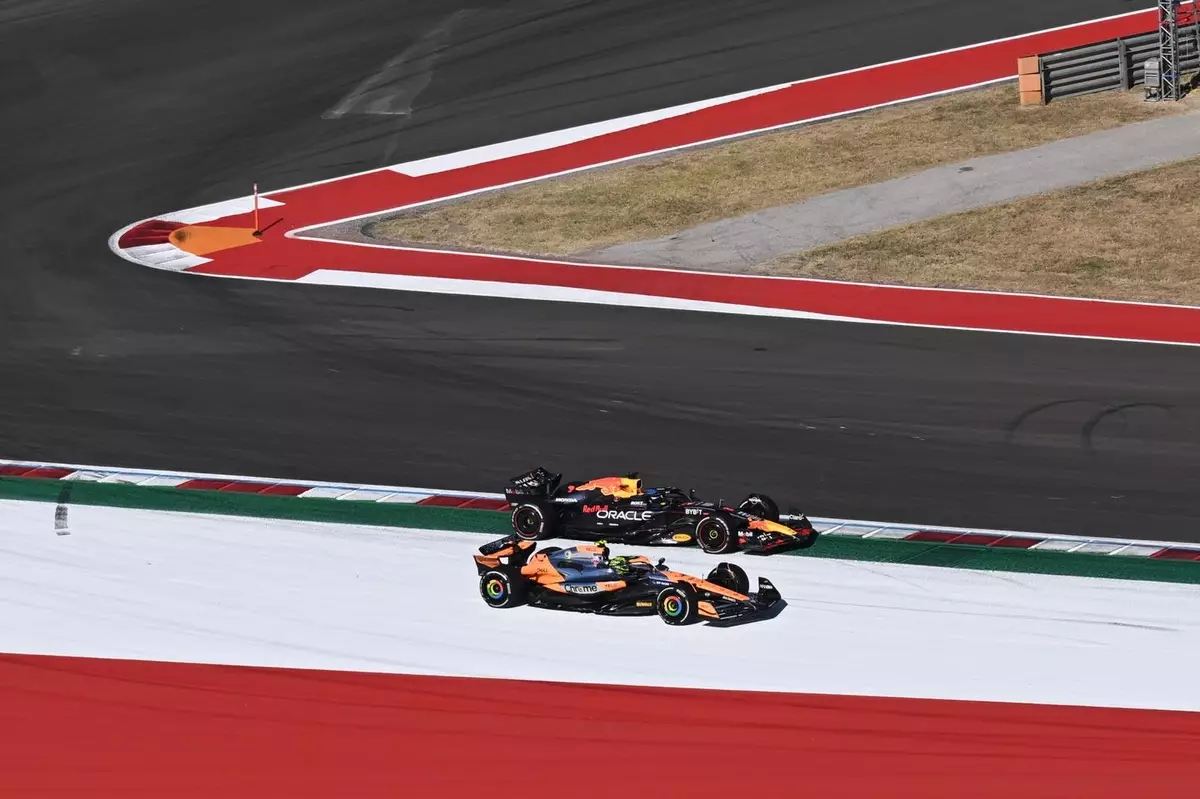In the world of Formula 1, where fractions of seconds determine champions and controversies arise in the heat of competition, the stakes have never been higher. McLaren’s recent move to request a right of review of Lando Norris’s penalty at the U.S. Grand Prix marks a pivotal moment, not just for the team, but for the very framework of racing regulations in this elite motorsport. This article delves into the implications of this request, the procedural elements involved, and the broader context within which it unfolds.
During the dramatic climax of the United States Grand Prix, the spotlight fell on a heated exchange between Lando Norris and Max Verstappen. As the duo battled fiercely, Norris found himself penalized with a five-second time penalty for allegedly overtaking Verstappen outside the track limits. The decision, though, did not come without contention. The competitiveness of Formula 1 naturally lends itself to split-second decisions that can trigger a flurry of opinions, and this incident was no exception. As Norris navigated the outer line at Austin’s Turn 12, both he and Verstappen found themselves in a precarious situation, one that would later be deemed worthy of a penalty by the stewards.
However, the crux of the issue lies in McLaren’s assertion that the context around this penalty warrants a fresh examination. The team argues that new evidence could potentially reshape the situation, challenging the stewards’ initial ruling.
Under the FIA’s International Sporting Code, teams possess the option to request a right of review if there is new, significant, and relevant information that could influence the outcome of a ruling. McLaren is stepping forward to assert this right, setting the stage for a hearing scheduled for the Friday before the Mexican Grand Prix. To succeed, they must demonstrate that the evidence they present was indeed unavailable during the original decision-making process.
A historical parallel can be drawn to Mercedes’ unsuccessful attempt to challenge Verstappen’s non-penalty during the 2021 Brazilian Grand Prix. In that instance, Mercedes contended that subsequent footage from Verstappen’s car provided context that wasn’t available to the stewards. Even with this new evidence, the stewards concluded it did not significantly alter their view, ultimately denying the review. McLaren faces a similar burden of proof in their bid to overturn Norris’s penalty, while weaving through the complex tapestry of stewards’ discretion and interpretation.
Should McLaren’s appeal be successful, the ramifications for the championship standings could be profound. If Norris’s penalty is overturned, he would reclaim the third position he originally scored at the race, altering the standings among title contenders dramatically. Such an outcome could reshape perceptions within the paddock and shift the momentum heading into subsequent races.
However, if the stewards uphold their decision, the message may resonate differently. It would reaffirm the stewards’ authority and interpretation of the rules, potentially discouraging similar requests in the future unless genuinely compelling evidence is presented. This dynamic could influence how teams strategize their responses in moments of regulatory dispute, weighing the costs and benefits of pushing for a review.
Adding another layer of complexity, McLaren’s own leadership, represented by team principal Andrea Stella, initially expressed skepticism about the existence of new evidence. This stance suggests a cautious approach within the team management, perhaps highlighting an internal debate on whether the potential risks of the review outweigh the benefits.
Stella’s comments provide insight into the team’s thought process and suggest that any claims to the contrary may be carefully considered against the overarching ethos of fair competition. The management’s communication plays a crucial role, influencing not only their public image but also the morale of their drivers and technical teams.
In Formula 1, the interplay between competition, technology, and regulation creates a uniquely complex environment. McLaren’s pursuit of a right of review for Lando Norris’s penalty encapsulates the essence of the sport: a race not just against competitors, but often against the very regulations that govern it. As the hearing approaches, the decision made will shed light on the principles of justice and integrity that govern Formula 1, positioning this incident as a significant reference point for future debates on competitive fairness and team strategy.


Leave a Reply